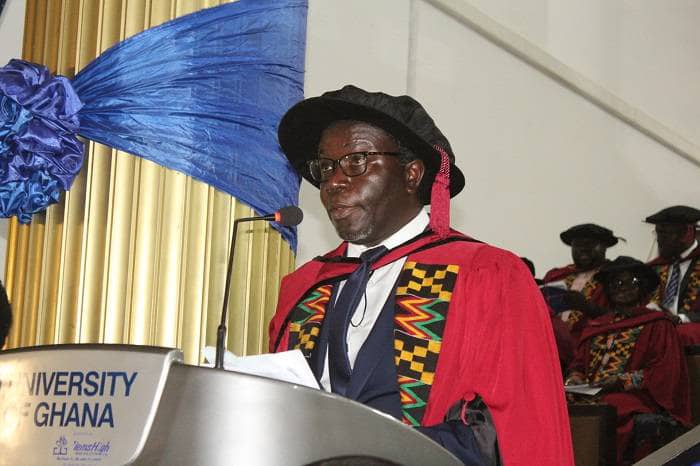Professor of pediatric clinical pharmacology and Director for the Centre of tropical medical pharmacology and therapeutic at the University of Ghana medical school emphasized the vital role of clinical trials in improving child health in Ghana and operational challenges in the field, paving the way for more inclusive and effective research practices.
He made the statement while delivering the first inaugural lecture for the 2024/2025 academic year.
The lecture was titled “Paradigms and Paradoxes: Enigmas in Clinical Trials in Ghanaian Children,” aimed at emphasizing the importance of clinical trials in advancing healthcare and improving treatment outcomes for vulnerable populations, particularly children.
He noted that while children constitute a substantial proportion of Ghana’s population, they are often underrepresented in clinical trials
“As noted in the abstracts, drug durability is a key issue in children. When a medicine is licensed after Phase III trials, it has specific indications, dosages, administration guidelines, and target populations (e.g., children, adults, men). This information is summarized in the Summary of Product Characteristics (SPC). Using a medicine differently than described in the SPC is considered “off-label” use. While sometimes necessary, especially when experience suggests it’s appropriate, off-label use in children means the drug hasn’t been formally tested in that population. This poses a risk, as the effects in children may be unknown.”
He highlighted several enigmas that continue to complicate pediatric clinical trials in Ghana. These include the scarcity of locally relevant protocols, inadequate investment in research, and the limited inclusion of children in global trials.
“Quinine use in children presents several challenges. A key concern is the risk of hypoglycemia (low blood sugar), which can be dangerous. Therefore, quinine is administered with glucose, requiring blood sugar level checks every four hours. In busy emergency rooms, especially those with staffing shortages, this frequent monitoring can be difficult to manage effectively”.
The Chair of the lecture and Vice-Chancellor of the University, Prof. Nana Aba Appiah Amfo encouraged having clinical research that is suitable for children. She questioned our commitment to investing in children’s education or health, and stated it is crucial Ghanaians begin to invest in it as much as we invest in their future.
–
Story by: Deborah Owusu| univers.ug.edu.gh






Very interesting details you have noted, regards for putting up.